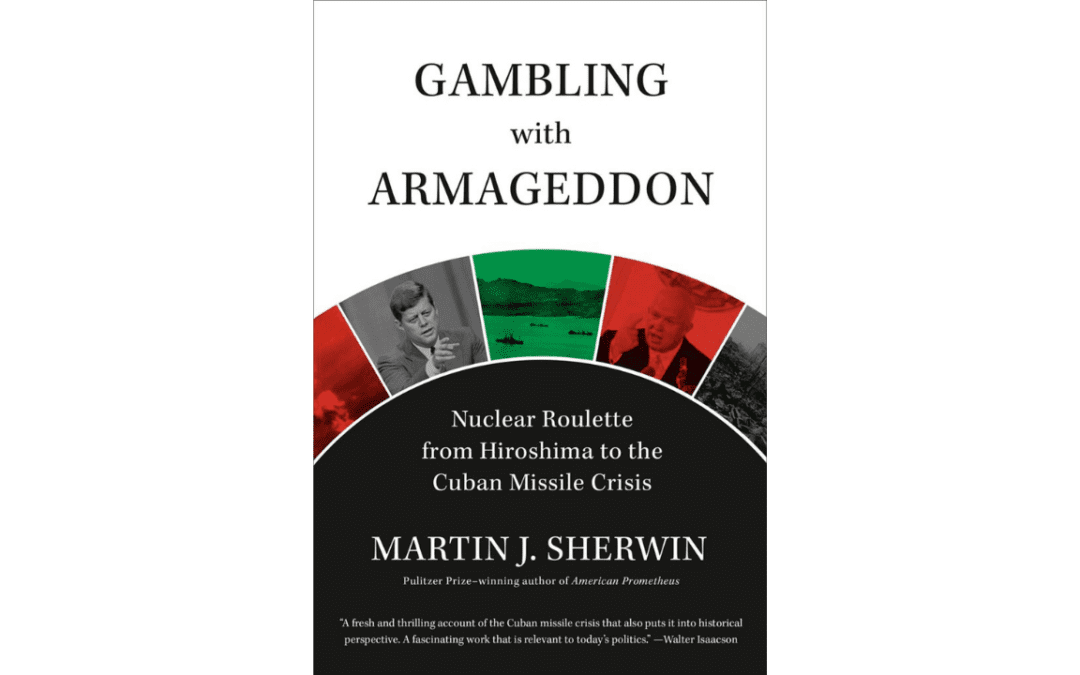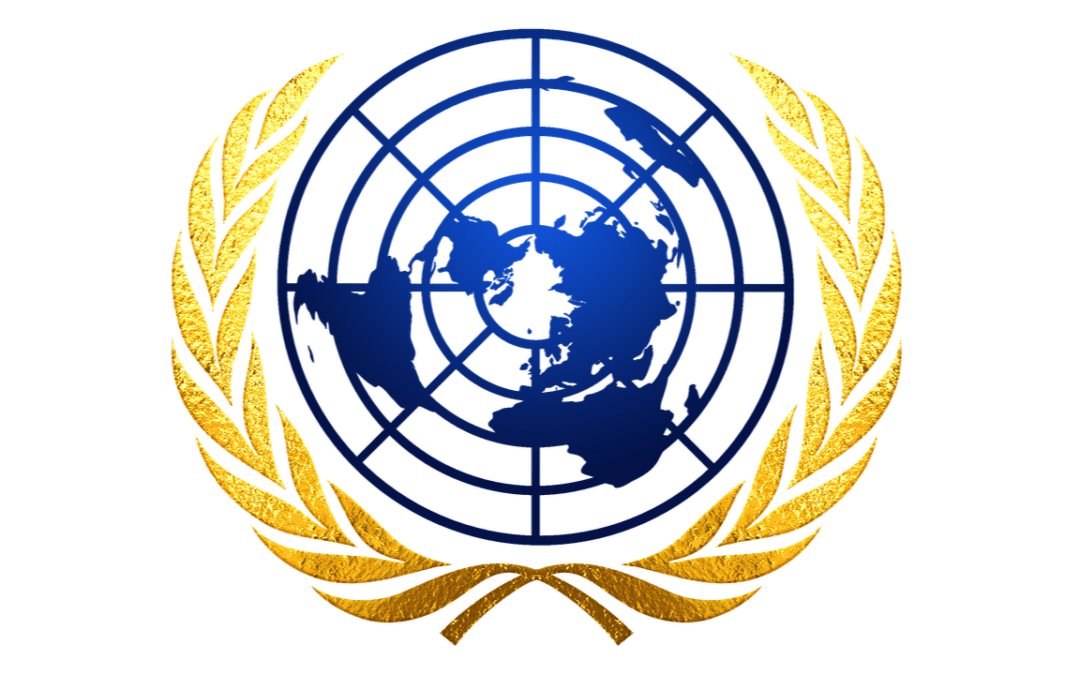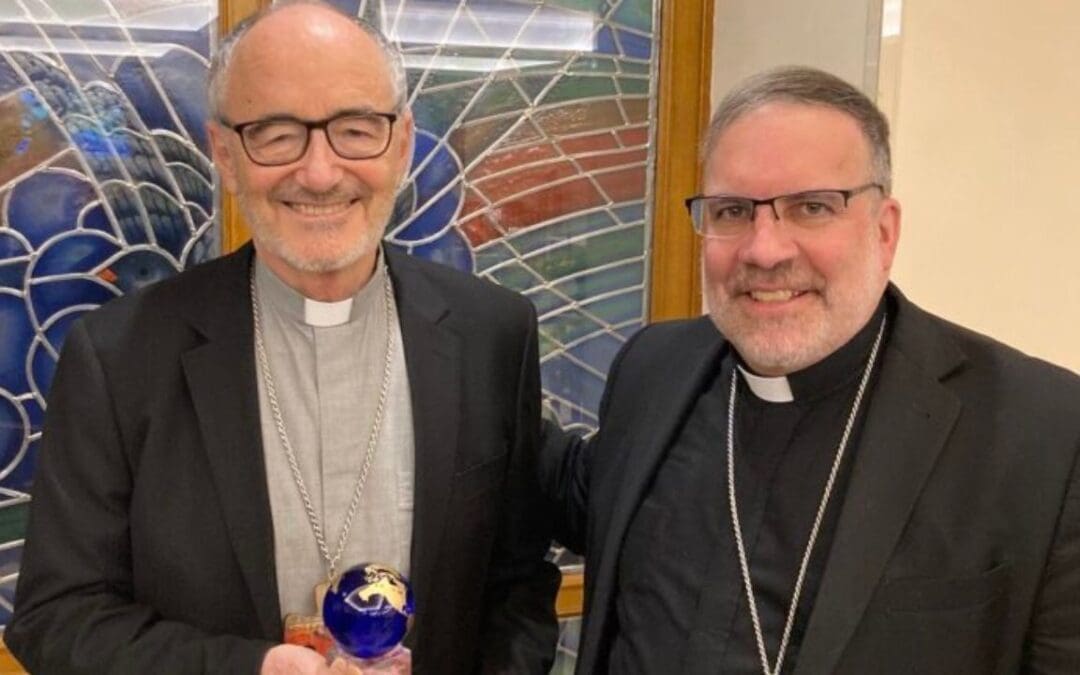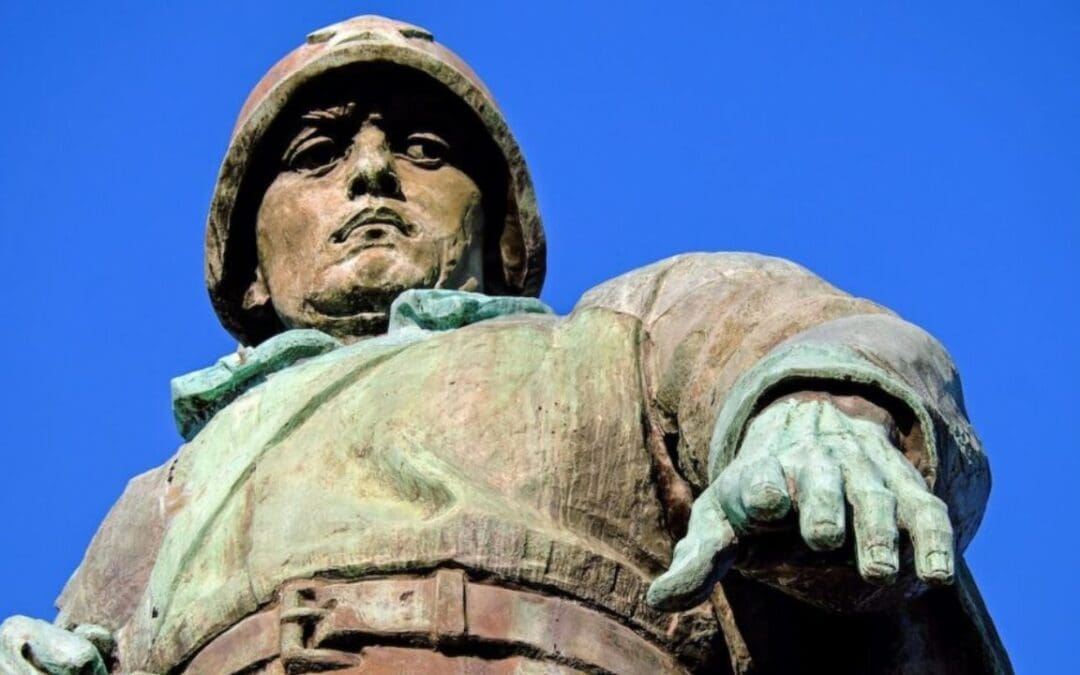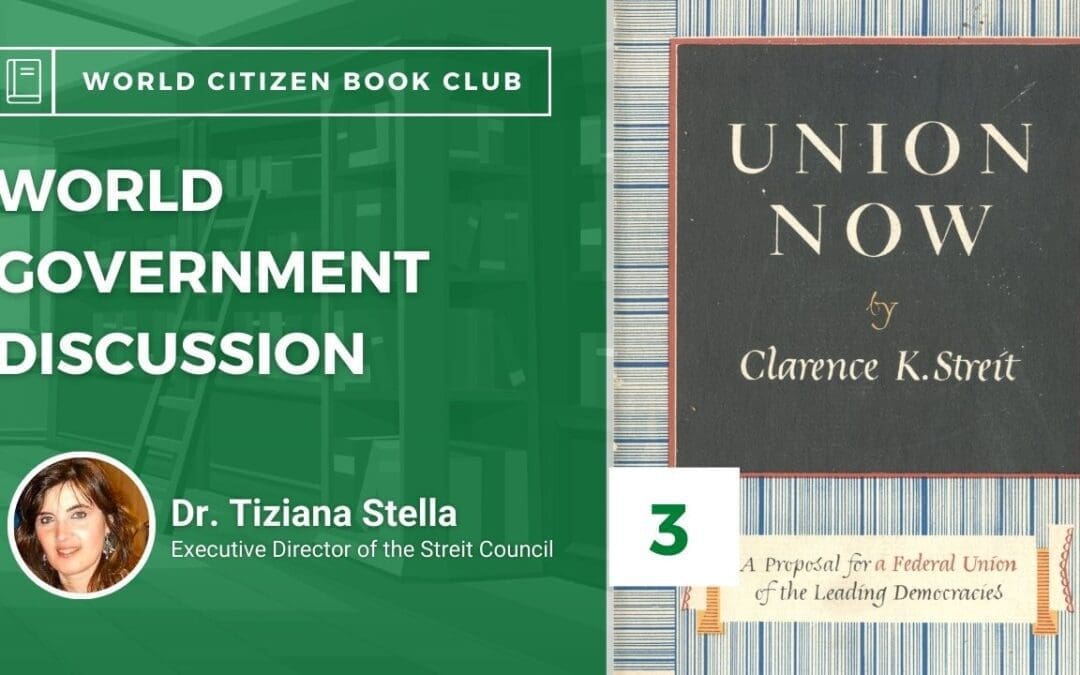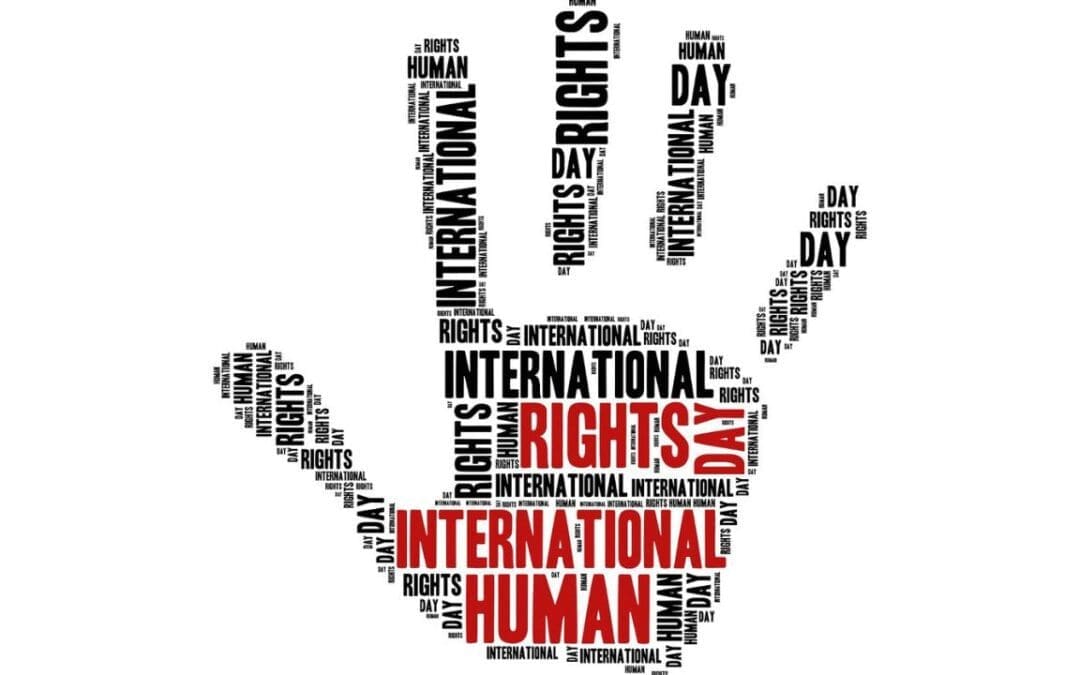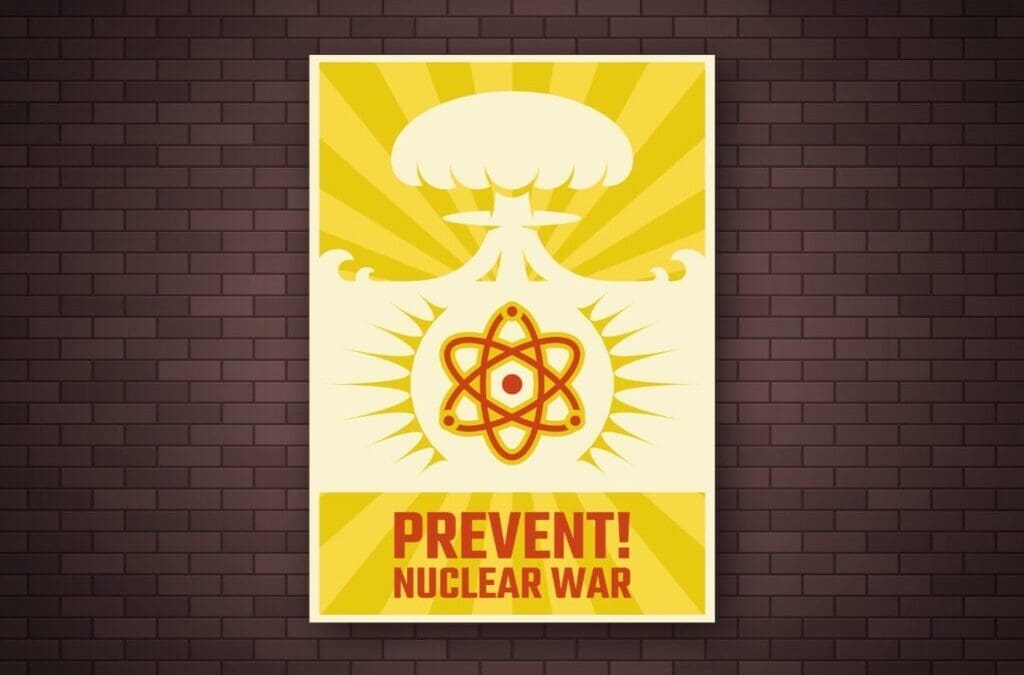
by Lawrence Wittner | Jan 18, 2023 | Disarmament
The development and the deployment of nuclear weapons are usually based on the assumption that they enhance national security. But, in fact, as this powerful study of nuclear policy convincingly demonstrates, nuclear weapons move nations toward the brink of destruction.
The basis for this conclusion is the post-World War II nuclear arms race and, especially, the Cuban missile crisis of October 1962. At the height of the crisis, top officials from the governments of the United States and the Soviet Union narrowly avoided annihilating a substantial portion of the human race by what former U.S. Secretary of State Dean Acheson, an important participant in the events, called “plain dumb luck.”
The author of this cautionary account, Martin Sherwin, who died shortly after its publication, was certainly well-qualified to tell this chilling story. A professor of history at George Mason University, Sherwin was the author of the influential A World Destroyed: Hiroshima and Its Legacies and the co-author, with Kai Bird, of American Prometheus: The Triumph and Tragedy of J. Robert Oppenheimer, which, in 2006, won the Pulitzer Prize for biography. Perhaps the key factor in generating these three scholarly works was Sherwin’s service as a U.S. Navy junior intelligence officer who was ordered to present top secret war plans to his commander during the Cuban missile crisis.
The Rise of Nuclear Weapons in International Affairs
In Gambling with Armageddon, Sherwin shows deftly how nuclear weapons gradually became a key part of international relations. Although Harry Truman favored some limitations on the integration of these weapons into U.S. national security strategy, his successor, Dwight Eisenhower, significantly expanded their role. According to the Eisenhower administration’s NSC 162/2, the U.S. government would henceforth “consider nuclear weapons as available for use as other munitions.” At Eisenhower’s direction, Sherwin notes, “nuclear weapons were no longer an element of American military power; they were its primary instrument.”
Sherwin adds that, although the major purpose of the new U.S. “massive retaliation” strategy “was to frighten Soviet leaders and stymie their ambitions,” its “principal result . . . was to establish a blueprint for Nikita Khrushchev to create his own ‘nuclear brinkmanship.’” John F. Kennedy’s early approach to U.S. national security policy―supplementing U.S. nuclear superiority with additional conventional military forces and sponsoring a CIA-directed invasion of Cuba―merely bolstered Khrushchev’s determination to contest U.S. power in world affairs. Consequently, resumption of Soviet nuclear weapons testing and a Soviet-American crisis over Berlin followed.
A Crisis Emerges Over Cuba
Indeed, dismayed by U.S. nuclear superiority and feeling disrespected by the U.S. government, Khrushchev decided to secretly deploy medium- and intermediate-range ballistic nuclear missiles in Cuba. As Sherwin observes, the Soviet leader sought thereby “to protect Cuba, to even the balance of nuclear weapons and nuclear fear, and to reinforce his leverage to resolve the West Berlin problem.” Assuming that the missiles would not be noticed until their deployment was completed, Khrushchev thought that the Kennedy administration, faced with a fait accompli, would have no choice but to accept them. Khrushchev was certainly not expecting a nuclear war.
But that is what nearly occurred. In the aftermath of the U.S. government’s discovery of the missile deployment in Cuba, the Joint Chiefs of Staff demanded the bombing and invasion of the island and were supported by most members of ExComm, an ad hoc group of Kennedy’s top advisors during the crisis. At the time, they did not realize that the Soviet government had already succeeded in delivering 164 nuclear warheads to Cuba and, therefore, that a substantial number of the ballistic missiles on the island were already operational. Also, the 42,000 Soviet troops in Cuba were armed with tactical nuclear weapons and had been given authorization to use them to repel an invasion. As Fidel Castro later remarked: “It goes without saying that in the event of an invasion, we would have had nuclear war.”
Initially, among all of Kennedy’s advisors, only Adlai Stevenson, the U.S. ambassador to the United Nations, suggested employing a political means―rather than a military one―to secure the removal of the missiles. Although Kennedy personally disliked Stevenson, he recognized the wisdom of his UN ambassador’s approach and gradually began to adopt his ideas. “The question really is,” the president told his hawkish advisors, “what action we take which lessens the chance of a nuclear exchange, which obviously is the final failure.” Therefore, Kennedy tempered his initial impulse to order rapid military action and, instead, adopted a plan for a naval blockade (“quarantine”) of Cuba, thereby halting the arrival of additional Soviet missiles and creating time for negotiations with Khrushchev for removal of the missiles already deployed.
U.S. military leaders, among other ostensible “wise men,” were appalled by what they considered the weakness of the blockade plan, though partially appeased by Kennedy’s assurances that, if it failed to secure the desired results within a seven-day period, a massive U.S. military attack on the island would follow. Indeed, as Sherwin reveals, at the beginning of October, before the discovery of the missiles, the U.S. Joint Chiefs of Staff were already planning for an invasion of Cuba and looking for an excuse to justify it.
Sliding Toward Disaster
Even though Khrushchev, like Kennedy, regarded the blockade as a useful opportunity to negotiate key issues, they quickly lost control of the volatile situation.
For example, U.S. military officers took the U.S.-Soviet confrontation to new heights. Acting on his own initiative, General Thomas Power, the head of the U.S. Strategic Air Command, advanced its nuclear forces to DEFCON 2, just one step short of nuclear war―the only occasion when that level of nuclear alert was ever instituted. He also broadcast the U.S. alert level “in the clear,” ensuring that the Russians would intercept it. They did, and promptly raised their nuclear alert level to the same status.
In addition, few participants in the crisis seemed to know exactly what should be done if a Soviet ship did not respect the U.S. blockade of Cuba. Should the U.S. Navy demand to board it? Fire upon it? Furthermore, at Castro’s orders, a Soviet surface-to-air battery in Cuba shot down an American U-2 surveillance flight, killing the pilot. Khrushchev was apoplectic at the provocative action, while the Kennedy administration faced the quandary of how to respond to it.
A particularly dangerous incident occurred in the Sargasso Sea, near Cuba. To bolster the Soviet defense of Cuba, four Soviet submarines, each armed with a torpedo housing a 15-kiloton nuclear warhead, had been dispatched to the island. After a long, harrowing trip through unusually stormy seas, these vessels were badly battered when they arrived off Cuba. Cut off from communication with Moscow, their crews had no idea whether the United States and the Soviet Union were already at war.
All they did know was that a fleet of U.S. naval warships and warplanes was apparently attacking one of the stricken Soviet submarines, using the unorthodox (and unauthorized) tactic of forcing it to surface by flinging hand grenades into its vicinity. One of the Soviet crew members recalled that “it felt like you were sitting in a metal barrel while somebody is constantly blasting with a sledgehammer.” Given the depletion of the submarine’s batteries and the tropical waters, temperatures ranged in the submarine between 113 and 149 degrees Fahrenheit. The air was foul, fresh water was in short supply, and crew members were reportedly “dropping like dominoes.” Unhinged by the insufferable conditions below deck and convinced that his submarine was under attack, the vessel’s captain ordered his weapons officer to assemble the nuclear torpedo for action. “We’re gonna blast them now!” he screamed. We will die, but we will sink them all―we will not become the shame of the fleet.”
At this point, though, Captain Vasily Arkhipov, a young Soviet brigade chief of staff who had been randomly assigned to the submarine, intervened. Calming the distraught captain, he eventually convinced him that the apparent military attack, plus subsequent machine gun fire from U.S. Navy aircraft, probably constituted no more than a demand to surface. And so they did. Arkhipov’s action, Sherwin notes, saved not only the lives of the submarine crew, “but also the lives of thousands of U.S. sailors and millions of innocent civilians who would have been killed in the nuclear exchanges that certainly would have followed from the destruction” that the “nuclear torpedo would have wreaked upon those U.S. Navy vessels.”
Although the Crisis is Resolved Peacefully, the Lesson is Lost
Meanwhile, recognizing that the situation was fast slipping out of their hands, Kennedy and Khrushchev did some tense but serious bargaining. Ultimately, they agreed that Khrushchev would remove the missiles, while Kennedy would issue a public pledge not to invade Cuba. Moreover, Kennedy would remove U.S. nuclear missiles from Turkey―reciprocal action that made sense to both men, although, for political reasons, Kennedy insisted on keeping the missile swap a secret. Thus, the missile crisis ended with a diplomatic solution.
Ironically, continued secrecy about the Cuba-Turkey missile swap, combined with illusions of smooth Kennedy administration calibrations of power spun by ExComm participants and the mass communications media, led to a long-term, comforting, and triumphalist picture of the missile crisis. Consequently, most Americans ended up with the impression that Kennedy stood firm in his demands, while Khrushchev “blinked.” It was a hawkish “lesson”―and a false one. As Sherwin points out, “the real lesson of the Cuban missile crisis . . . is that nuclear armaments create the perils they are deployed to prevent, but are of little use in resolving them.”
Although numerous books have been written about the Cuban missile crisis, Gambling with Armageddon ranks as the best of them. Factually detailed, clearly and dramatically written, and grounded in massive research, it is a work of enormous power and erudition. As such, it represents an outstanding achievement by one of the pre-eminent U.S. historians.
Like Sherwin’s other works, Gambling with Armageddon also grapples with one of the world’s major problems: the prospect of nuclear annihilation. At the least, it reveals that, while nuclear weapons exist, the world remains in peril. On a deeper level, it suggests the need to move beyond considerations of national security to international security, including the abolition of nuclear weapons and the peaceful resolution of conflict among nations.
Securing these goals might necessitate a long journey, but Sherwin’s writings remind us that, to safeguard human survival, there’s really no alternative to pressing forward with it.

by Citizens for Global Solutions | Jan 14, 2023 | Past Event
The final session discussions focused on Chapters 11-13. Streit urges the world’s democracies to create an initial world federation that would be so powerful that other countries would follow.

by Lawrence Wittner | Jan 1, 2023 | Disarmament, World Federation
Russia’s war upon Ukraine should remind us that violent international conflicts not only persist, but constitute a plague upon the world.
Over thousands of years, wars have brought immense suffering to people around the globe. In addition to the widespread annihilation of human life, wars have produced vast material losses, including the destruction of homes, schools, hospitals, entire cities, the environment, and much of what people value as civilization. They have also channeled enormous financial resources into military buildups that, even if not employed in battle, deprive other public and private programs of adequate attention and funding. Also, since World War II, when nuclear weapons were first developed and used with terrible effect, the means of waging war have entered a new dimension, giving it the power to destroy virtually all life on earth.
Although, in recent centuries, many people have lamented war’s squandering of blood and treasure, as well as the suicidal nature of modern war, they have not yet found an effective way to stop it.
Public Efforts to Avoid War
One popular response to war is isolationism, which is designed to keep one’s nation out of the conflict. But this policy (labeled “America First” in the United States) ignores the suffering of other people and, of course, does nothing to stop a war elsewhere. In addition, it is often accompanied by a military buildup of one’s own nation, a policy that has a poor track record when it comes to preventing war.
Pacifism is on a higher ethical plane, for it deplores the horrors produced by militarism and war. Furthermore, if most people around the world accepted the absolute pacifist position (which rejects military force in all circumstances), pacifists might be able to prevent wars from occurring or continuing. But this is not the case and, given widespread public support for “just wars” (including defense against invasion), seems unlikely to become so. Nonviolent resistance, a form of radical pacifism, has greater potentiality as an alternative to war or surrender, although its full promise has yet to be realized in coping with international war.
Effective Governance and Violent Behavior
By contrast, within nations there are alternatives to violent behavior that, although not always totally effective, do reduce it substantially. Legislative bodies enact laws, while police and judicial institutions enforce these laws. Unfortunately, on the global level, these institutions are so rudimentary and limited in power that they fail to produce an effective check upon violence. Thus, on the national level, governments can restrain violence by individuals, mobs, or insurrectionists. But, on the international level, things proceed much as they did in the American Wild West of yesteryear. In this state of international anarchy, strong nations all too often threaten or wage war upon the weak, and nations often feel insecure unless they maintain a substantial capacity for war.
In short, while nations have established useful governance at the national level, the world lacks effective governance at the international level. As a result, when nations have an international conflict, they are tempted, in the absence of the force of law, to invoke the law of force.
Strengthening Global Governance
Even so, the nations of the world could unite in the interest of their common security and bolster institutions of global governance. To strengthen the UN Security Council, they could abolish the veto and substitute a rotating membership for the permanent membership of Russia, China, the United States, Britain, and France. To strengthen the General Assembly, they could give it additional legislative power, including the power to fund the United Nations through taxation. To enhance the democratic nature of the United Nations, they could establish a world parliament, with representatives elected by the public rather than selected by national governments. Additional power could also be granted to the International Criminal Court and to the International Court of Justice to conduct investigations, deliver judgments, and enforce their rulings.
These kinds of reform measures have been advocated for years by the World Federalist Movement/Institute for Global Policy and by its U.S. member organization, Citizens for Global Solutions. Strengthened governmental authority on the global level is also supported by world public opinion.
A stronger array of international institutions is not a cure-all for international war. But, like the enforcement of gun control within nations, it would significantly reduce the number of violent incidents. It would help prevent international aggression. And it would save the world from nuclear war by enforcing the UN Treaty on the Prohibition of Nuclear Weapons. After thousands of years of blood and plunder, topped off in recent decades by the looming danger of a nuclear holocaust, isn’t it time to give strengthened global governance a try?
Nations of the world unite! You have nothing to lose but your wars.

by Jacopo DeMarinis | Dec 23, 2022 | World Federation
A world government is in the making, and we desperately need one. Why?
The world today is in turmoil, and our current global governance infrastructure (the UN, the International Court of Justice (ICJ), etc.) has proven itself unable to rise to the challenge, despite its best efforts. The undemocratic and ineffective UN Security Council, where five permanent members wield a veto that can block any binding resolution related to peace and security, routinely fails to prevent international political conflict. For example, Russia, a permanent member of the Council, has repeatedly blocked resolutions related to the Russian invasion of Ukraine. Individual countries, especially the US, Russia, and China, are not sufficiently held accountable when they don’t adhere to the provisions of international climate change or nuclear weapons control/disarmament treaties. This was the case when the US pulled out of the Paris Accords and Russia refused to support a recent UN version of the Treaty on the Non-Proliferation of Nuclear Weapons (NPT). Human rights violations abound despite the Universal Declaration of Human Rights and the International Covenant on Civil and Political Rights.
Why are our international institutions incapable of addressing these threats to global security?
The reason is that one desperately-needed element is missing from the global security architecture: international law. As esteemed world federalist and Nuremberg War Crimes Trial prosecutor Benjamin Ferencz stated, “the only way to… solve the problem of war… is to replace the law of force with the force of law.” The law of force characterizes today’s international system as countries exercise absolute sovereignty and can invade other nations, disregard international treaties, and abuse their citizens or migrants with impunity. And, when other countries attempt to de-escalate a crisis or urge the offending government to obey international norms and declarations, there is little that can be done beyond condemning the country at the UN or imposing sanctions, which hurt the entire country. And that is the way of a world governed by the law of force… injustice leads to more injustice.
A democratically elected world government can end this cycle of injustice by providing stability and security in a chaotic international environment desperately in need of some sanity. It would do this by requiring that each country’s national military be reduced to what is required for internal policing, diverting military budgets into domestic infrastructure that will enhance citizens’ quality of life. An “international peacekeeping force” would be created to enforce world law and prevent interstate conflict as part of an international “executive branch.”
But do not despair! A world government is more than feasible; it is in the works.
History has demonstrated that, as economic and technological change transformed countries, their political system likewise changed to safeguard people’s rights and security. Sovereignty resided in clans and tribes, then towns, cities, dynasties, and nation-states as socioeconomic conditions obligated people to entrust their security to more centralized governments with greater jurisdiction, capable of preventing internal conflict. The most recent “socioeconomic conditions”- the Industrial Revolution, the development of the atomic bomb, and the digital revolution- have given rise to a technological, economically, and physically interconnected world that needs an interconnected world government capable of protecting us all from the ripple effects of the abuses caused by absolute sovereignty. The most extreme case of absolute sovereignty annihilating the world is a country unilaterally starting a nuclear war.
This historical and inevitable transfer of authority to higher levels of government with greater jurisdiction is exemplified by American history when the Constitutional Convention of 1787 formed a federal government despite some delegates’ objections. This federal government worked to ensure internal unity and stability by preventing the South from destroying the United States to preserve slavery and- despite failing to prevent many human rights abuses against African Americans and other marginalized groups- eventually successfully passed landmark legislation like the Civil Rights Act of 1964 that moved the needle toward greater justice and equality for all. And this was done while protecting states’ rights, just as a world government would protect national sovereignty. Were it not for a strong, centralized government, the separate states would probably have failed to effectively address the secession challenge and slavery might not have been abolished. So, while a world government, like the US government, would not be perfect, it would provide internal stability and unity and make universal declarations of human/civil rights- in addition to international treaties that address shared global challenges- legally binding.
Fortunately, people are recognizing the inevitability of a world government.
Already nations are demanding UN Security Council reform to challenge the undue influence afforded to a handful of lucky countries, urging that the more democratic General Assembly play a greater role in UN resolutions regarding peace and security. There are vibrant global campaigns to establish a UN Parliamentary Assembly whose decisions would be binding, and to strengthen international courts like the International Criminal Court. The movement for world federalism, led by the World Federalist Movement/Institute for Global Policy, is rapidly growing, with thousands of politicians all over the globe supporting the movement and new organizations like Atlas and Young World Federalists joining the cause.
When enough people exert enough pressure on their national governments to call for a world government, there will be a world government. Let’s hope, for the sake of the coming generations, that enough people wake up before it’s too late.

by David Gallup | Dec 19, 2022 | Human Rights
If we want a world where our human and environmental rights are elevated, we must place as much importance on our responsibilities to humanity and the planet as we put on our rights.
The Universal Declaration of Human Rights (UDHR) sets forth the fundamental rights belonging to every individual in the world. The UDHR celebrated its 74th anniversary on December 10, 2022.
This year also marks the 50th anniversary of the Declaration on the Human Environment and the 5th anniversary of the Declaration of Ethical Principles of Climate Change. These declarations call for the preservation, enhancement, and equitable use of the environment for present and future generations.
The UN Conference of Parties that occurs every year, the most recent being COP27 in Egypt last month, develops additional accords to enforce environmental rights, such as the Loss and Damage Fund intended to assist people in places most negatively affected by climate disasters.
Distressingly, humanity has yet to fulfill the duties that arise from these global meetings of national governments and from these rights declarations. Celebrating these declarations and international agreements builds an understanding of human and environmental rights. Rights awareness is the first step. The next step is to implement the goals of the declarations, especially for people living in the most vulnerable situations.
Refugees, the stateless, the indigenous, the economically disadvantaged, and those facing war, discrimination, and oppression suffer the most from deleterious human impacts on the environment. Close to 100 million internally/externally displaced and stateless persons in the world – one out of every 80 persons – have had to flee their homes to seek safe places to live. As environmental destruction worsens, climate refugees will multiply this number exponentially.
Civil society has been present during the development of human and environmental rights declarations, but individual humans do not yet have a vote in world affairs. As national citizens, individuals can vote on local issues, but we have limited or no say in how governments and corporations around the world treat the oceans, the forests, the land, the atmosphere, and other species.
In the nation-state system, governments and their leaders can violate human and environmental rights with impunity, because individual accountability for global violations does not yet exist in human and environmental rights law spheres at the world level.
But there are legal and societal measures that we can implement to realize the promise of human and environmental rights declarations.
Global institutions of world law, such as a universal rights court and a people’s world parliament, are tools that can help realign humanity’s priorities to be in sync with the needs of the Earth.
Attempts to address environmental rights judicially are in process. For example, ecocide – severe, widespread, or long-term damage to the environment – is under consideration as a crime within the jurisdiction of the existing International Criminal Court and a future International Court for the Environment. An environmental rights court would adjudicate ecocide, but not the human rights violations of people living in affected areas. A global judicial system that adjudicates violations of both human and environmental rights, a World Court of Human and Environmental Rights, would provide a holistic solution.
World law institutions are one component to realizing universal rights. The other component is empowering individual action by recognizing our legal status as world citizens. With the right to vote directly in world referenda or through world parliamentarians on issues that affect the entire world, we would increase our individual engagement and our personal responsibility.
Seeing the Earth as one, world citizens understand how our actions affect our fellow humans and the environment. Together, we can develop strategies for sustainable living based not just on human needs, but also on the needs of the Earth.
Human rights and environmental rights are intertwined. Without a safe and sustainable environment, our rights become meaningless. Without just and peaceful interactions among humans, the Earth becomes a victim of human violence, for war is one of the worst destroyers of nature.
As the brain and conscience for the planet, we world citizens have the duty to use our intelligence and empathy to harmonize the needs of humanity with the needs of the Earth.

by Citizens for Global Solutions | Dec 14, 2022 | Human Rights
Citizens for Global Solutions is honored to present Pope Francis with our Global Citizen Award for 2022. This award is presented once a year to an individual who is recognized as a Global Citizen by the general public for their commitment to one or more of the following areas:
- An end to war and violence in the resolution of international disputes
- The elimination of nuclear weapons
- Democratic global governance
- Protection of universal human rights and freedoms
- Care of the global environment
- Embracing loyalty to our world in addition to loyalty to any one nation
Pope Francis has demonstrated to the whole world his commitment to all these areas.
As the leader of the Catholic Church, he is truly catholic/universal in his concern for the entire human family and the planet we all share.
His work to protect the global environment is inspiring. “Laudato Si” was instrumental in helping the people and the leaders of the world recognize the seriousness of the environmental crisis facing our common home.
We are inspired by his teaching in “Fratelli Tutti” about a love capable of transcending borders so that the human family can live together in harmony and peace, without expecting everyone to be or look the same. We also agree with his advice in this document that we need new structures to solve global problems that affect us all. Indeed Pope Francis is a great world citizen and a model for all of us.
Citizens for Global Solutions promotes the ideal of “world peace through world law” and democratic world federation, which is consistent with the Catholic Church’s teachings on a public authority for the world community, subsidiarity, solidarity, and the protection of human rights.
We are grateful to Bishop John Stowe, who is a member of the CGS National Advisory Council, who hand carried this award from the US to the Vatican for Pope Francis. Bishop Stowe presented the award to Cardinal Michael Czerny, SJ, Prefect of the Dicastery for Integral Human Development.
Thank you, Pope Francis, for all you do to make our world a better, safer, healthier, more loving place for all humanity.

by Lawrence Wittner | Dec 10, 2022 | Peace
Although all wars are not imperialist wars, it is remarkable how many imperial conquests have occurred over past centuries.
Mobilizing their military forces, powerful states and, later, nations carved out vast empires at the expense of weaker or less warlike societies. Some of the largest and best-known empires to emerge over the millennia were the Persian, the Chinese, the Mongol, the Ottoman, the Russian, the Spanish, and the British.
The standard policy for these and other empires was to absorb new, conquered lands into their domains, either as parts of the mother country or as colonies. In the eighteenth century, the British, French, Spanish, and Portuguese empires used their military muscle to seize substantial portions of the Western Hemisphere from the native inhabitants. During the nineteenth and early twentieth centuries, imperial conquest accelerated rapidly around the world. By 1913 almost all of Africa had been colonized by European powers, while Imperial Russia, having annexed its neighbors, had become the world’s largest nation. Asia, too, had fallen largely under foreign domination. Meanwhile, the United States, established by a thin string of colonies along the Atlantic coast of North America, expanded across the continent to the Pacific, mostly thanks to successful wars against Mexico and Indian nations. Thereafter it moved on to colonize Hawaii, the Philippines, Cuba, Puerto Rico, and Guam.
Rising Resistance to Imperialist Wars
But imperialist conquests didn’t sit well with the emerging democratic spirit of the early twentieth century. They didn’t sit well with the rising socialist movement that denounced imperialism as a tool of the ruling class. They didn’t sit well with subject nationality groups and nations that were beginning to demand national self-determination and independence.
Consequently, as the horrors of World War I engulfed large portions of the globe and as war-weary soldiers and the public turned increasingly against imperialist war aims, government leaders adapted to the new mood. Having, belatedly, brought the United States into an alliance with Britain and France in their war against the Central Powers, U.S. President Woodrow Wilson issued his Fourteen Points in January 1918. This document promised no secret imperialist treaties, an adjustment of colonial claims, and a League of Nations to guarantee “political independence and territorial integrity to great and small States alike.” The Fourteen Points evoked an enthusiastic response, including from the young Ho Chi Minh, who turned up at the 1919 Versailles peace conference to press for Vietnam’s independence from French colonial rule.
In many ways, the Versailles peace settlement proved a failure. The promised “self-determination” was limited to Europe, and although the League did establish a “mandate” system to prepare colonies elsewhere for independence, it merely shifted their rulers from the Central Powers to the war’s victors. Moreover, the rising fascist nations—Germany, Italy, and Japan—threw off even a pretense of favoring decolonization and launched imperialist wars in Africa, Europe, and Asia.
Important Breakthroughs and Setbacks After World War II
Ultimately, it took World War II to shatter the old colonial system. In its aftermath, the imperial powers gradually abandoned their colonial rule in Africa, the Middle East, and Asia. In some cases (for example, in Indonesia, Algeria, and Vietnam), they were driven out by anti-colonial revolutions. More often, however, internal agitation for independence and external pressure by the United Nations led to the advent of self-government, after 1945, in most of the former 80 colonies.
Even so, as the old-style imperialism crumbled, a newer model—replacing outright colonialism with political control through occasional military intervention—arose during the Cold War. For the most part, this new imperialism was practiced by the Soviet Union in Eastern Europe and Afghanistan and by the United States in Latin America, and Vietnam. With the end of the Cold War, however, even the new imperialism declined.
Therefore, it came as a shock when, this February, the Russian government, having formally recognized Ukraine’s independence in 1994, launched an old-fashioned imperialist war against that nation. Only a few days before the invasion, Vladimir Putin issued a proclamation denying Ukraine’s right to an independent existence and claiming that Ukraine was “Russian land.” Not surprisingly, the UN General Assembly condemned the invasion by a vote of 141 to 5.
Although Putin justified the military assault by claiming that Ukraine’s membership in NATO would provide an existential threat to Russia, that membership was not at all imminent when the invasion occurred. A month later, when President Zelensky offered to have his nation remain neutral in exchange for a Russian withdrawal from Ukraine, Putin ignored the offer. In May, when Finland and Sweden, horrified by the Russian invasion, announced plans to join NATO, Putin failed to halt it. Instead, this October, Russia annexed about a sixth of Ukraine’s territory. Nor has Putin ever renounced gobbling up the rest of Ukraine.
Stopping Imperialist Aggression
Can anything be done to bring an end to imperialist wars?
Yes, several things could be done. One that has been effective on some occasions is to mobilize an anti-imperialist movement in the aggressor nation and elsewhere. Another that has worked is for the colonized to militarily resist the imperialist power―although, of course, the human cost can be enormous. Furthermore, the international community can roundly condemn imperialist wars and refuse to recognize territorial annexations that flow from them.
Ultimately, though, the world needs a strengthened international security system that will reject both the old and the new imperialism. In some ways, the United Nations already provides this framework through the UN Charter, the power to levy economic sanctions, and a structure for the mediation of conflicts. Even so, the world organization is not yet strong enough to wipe out the vestiges of imperialist aggression. No single country―and certainly not the imperial nations of the past―has the credibility and power to tackle this project alone. But the world community might just possess enough wisdom and determination to finish the job it began a century ago.

by Citizens for Global Solutions | Dec 10, 2022 | Past Event
Discussion of Chapters 7-10 of Union Now by Clarence Streit (1939). In his book, Streit urges the world’s democracies to create an initial world federation that would be so powerful that other countries would follow.

by Citizens for Global Solutions | Dec 9, 2022 | Organizational Statement
Displacement Due to Climate Disasters is a Human Rights Issue
Washington, DC – On December 10, Citizens for Global Solutions (CGS) celebrates Human Rights Day to commemorate the adoption by the United Nations General Assembly of the Universal Declaration of Human Rights in 1948. The UN Human Rights Office of the High Commission declares, this year’s Human Rights Day slogan is “Dignity, Freedom, and Justice for All” and the call to action is #StandUp4HumanRights.”
CGS also recognizes that in 2021, 27.3 million people were internally displaced in their own countries due to climate related disasters. From June through October of this year, Pakistan experienced the worst floods in history, internally displacing 33 million people and killing thousands. Climate change is affecting our universal human rights to life, food, water, an adequate standard of living, a healthy environment, and our health.
Legal action through ecocide law or treaties, beyond the nation-state status quo, is urgently needed today to make the destruction of our environment an international criminal act. International law with a mechanism to enforce legally binding environmental treaties can mitigate our current climate crisis.
Innovative solutions to specific environmental and human rights issues have already been proposed and it is our responsibility to call on our government to petition international organizations to implement them. For example, the UN and other multilateral institutions could establish a “Global Climate Research Registry and Climate Action Clearinghouse” to serve as a depository for research on climate change mitigation and adaptation measures, develop recommendations regarding best practices, and coordinate international action. The UN could strengthen the International Court of Justice (ICJ) so that it has mandatory jurisdiction over all member states, which would ensure universal commitment to human rights. Furthermore, establishing regional tribunals to safeguard human rights and address environmental crimes that are local to a specific region could provide an effective way to address human rights violations caused by climate-related displacement.
About Citizens for Global Solutions & Young World Federalists
Citizens for Global Solutions (CGS) is a non-governmental, non-profit, non-partisan membership-based organization that for more than 75 years has brought together a diverse collective of individuals and organizations with a common goal of a unified world predicated upon peace, human rights, and the rule of law. From championing ratification of the UN Charter upon our establishment in 1947 to supporting creation of the International Criminal Court (ICC) 25 years ago to advocating for global instruments to confront today’s enduring challenges of war and climate degradation, CGS recognizes that true progress is a generational enterprise. We invite like-minded individuals and organizations to join us in this mission.
The Young World Federalists are a global movement fighting to give humanity a voice. We envision a sustainable, just, and peaceful world through a democratic world federation. A world run by humanity, for humanity, providing equal opportunity to all on a thriving planet.
Contact:
Donna Park dpark@globalsolutions.org

by Lawrence Wittner | Nov 28, 2022 | Disarmament, Peace
Even international alliances can unravel when nations confront the insanity of a nuclear holocaust.
An illustration of this point occurred recently, after Vladimir Putin once again threatened Ukraine and other nations with nuclear war. “To defend Russia and our people, we doubtlessly will use all weapons resources at our disposal,” the Russian president said. “This is not a bluff.” In response to this statement and to sharp UN condemnation of Russian nuclear threats, Chinese president Xi Jinping issued a public statement early this November, assailing “the use of, or threats to use nuclear weapons.” To “prevent a nuclear crisis” in Europe or Asia, he insisted, the world should “advocate that nuclear weapons cannot be used” and “a nuclear war cannot be waged.”
Aren’t these two nuclear-armed nations currently aligned in their resistance to U.S. foreign policy? Yes, they are, and when it came to Putin’s war upon Ukraine, Xi refrained from suggesting a Russian withdrawal. But nuclear war, as the Chinese leader made clear, was simply not acceptable.
This was not the first time a Russian-Chinese alliance was ruffled by a dispute over the use of nuclear weapons. An even deeper conflict occurred during the late 1950s and early 1960s when, ironically, the roles of the two nations were exactly the reverse.
At that time, the Chinese government, led by Mao Zedong, was embarked on a crash program to develop nuclear weapons. In October 1957, China’s weapons program secured a major gain when the Russian and Chinese governments signed the New Defense Technical Accord, in which the Russians agreed to supplementing the nuclear assistance they had already provided to the Chinese by supplying them with a prototype atomic bomb, missiles, and useful technical data.
But Russian officials soon had reason to doubt the wisdom of assisting China’s nuclear weapons development program. As Soviet premier Nikita Khrushchev recalled, the following month, at a Moscow conclave of Communist party leaders from around the world, Mao gave a speech on nuclear war that startled those in attendance. According to the Soviet leader, the “gist” of Mao’s speech was: “We shouldn’t fear war. We shouldn’t be afraid of atomic bombs and missiles. No matter what kind of war breaks out―conventional or thermonuclear―we’ll win.” When it came to China, Mao reportedly said, “we may lose more than three hundred million people. So what? War is war. The years will pass, and we’ll get to work producing more babies than ever before.”
Khrushchev found Mao’s remarks “deeply disturbing,” and recalled with irritation: “Everybody except Mao was thinking about how to avoid war. Our principal slogan was ‘On with the Struggle for Peace and Peaceful Coexistence.’ Yet here came Mao . . . saying we shouldn’t be afraid of war.’ In early 1958, as Soviet doubts increased about the reliability of China’s leadership in dealing with nuclear weapons, Khrushchev decided to postpone shipment of the prototype atomic bomb to China.
Eventually, the Soviet government not only withdrew its assistance to the Chinese nuclear weapons program in 1960, but took steps that placed the Soviet Union at loggerheads with the Chinese leadership. Key among these steps was working out an agreement on a nuclear test ban treaty with the governments of the United States and Britain—an agreement that, in part, was designed to block the ability of China to become a nuclear power. This Soviet shift toward a nuclear arms control and disarmament treaty with the West was bitterly opposed by China’s rulers, who were determined to develop nuclear weapons and, by 1964, succeeded in doing so. Meanwhile, the Sino-Soviet rift grew ever more heated, with the Chinese pulling out of the Soviet-dominated World Peace Council and ferociously competing with the Russians for leadership of the world Communist movement.
There are some lessons that can be learned from these incidents, in which major powers displayed signs of veering toward nuclear war. The obvious one is that even military allies might balk, at times, when they see an international confrontation slipping toward a nuclear disaster. Another, less evident, is that nations with access to nuclear weapons are not necessarily restrained from threatening or waging nuclear war by the prospect of nuclear retaliation from other nuclear powers. Or, to put it another way, nuclear deterrence is unreliable. Above all, these events and others underscore the fact that, while nuclear weapons exist, the world remains in peril.
Fortunately, abolishing nuclear weapons before they destroy the world is not an utterly utopian prospect. Thanks to popular pressure and disarmament treaties, the number of nuclear weapons around the globe has been reduced since 1986 from about 70,000 to 12,700. Moreover, a UN Treaty on the Prohibition of Nuclear Weapons, crafted and approved by an overwhelming majority of the world’s nations, went into effect in January 2021.
Unfortunately, none of the world’s nine nuclear powers has signed or ratified this nuclear weapons abolition treaty. Until they do so and, therefore, stop producing, stockpiling, and distributing nuclear weapons to other countries, the world will continue to live in a state of nuclear peril, subject only to occasional flashes of sanity by these same nuclear-armed nations.
Surely, people around the world deserve a better future.
